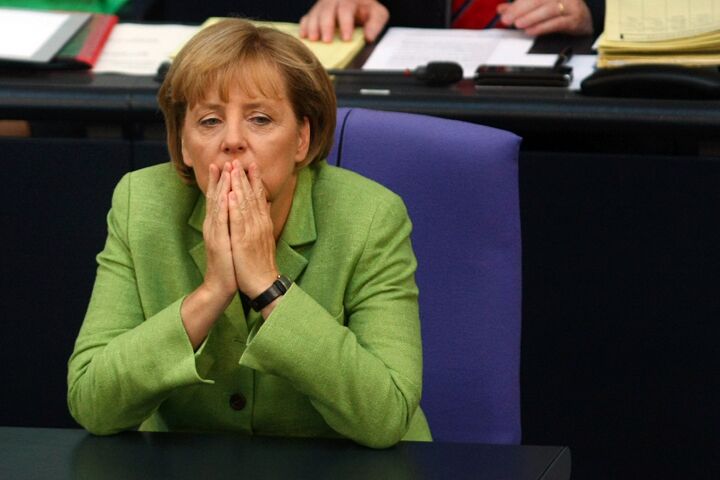
Merkel Loses State Elections
German Chancellor Angela Merkel’s Christian Democratic Union (cdu) suffered major losses in two state elections Sunday, signaling “a major shift in patterns that have governed German politics since the Allies remade the system after 1945,” according to the New York Times.
The cdu and its preferred coalition partner, the Free Democratic Party (fdp), lost their absolute majority in Thuringia and Saarland. Merkel’s rivals, the Social Democrats, hope that these results show they still have a chance in the national elections scheduled for September 27.
The state elections also show an increase in power for the smaller parties, particularly the Left Party, a re-branded version of the old Communist Party in East Germany. The Left Party’s share of the vote in the western state of Saarland grew from 2.3 percent in 2004 to 21.3 percent.
The Left Party’s popular platform of taxing the rich, expanding the public sector and lowering the retirement age drew votes away from the slightly less left-wing Social Democratic Party (spd). Now, the spd may ally with the Left Party, along with its preferred coalition partner, the Green Party, to form the next state government in Saarland. If this happens, it will be the first time the communist Left Party has formed part of a government in the western part of Germany. “It would suggest,” writes the New York Times, “that these two leftist parties need each other if they ever want to make it at the federal level.”
While the spd will work with the Left Party on the state and regional levels, it has so far ruled out forming a national coalition with it.
These developments on the regional level could be part of a major change in German national politics. The New York Times writes:
Mrs. Merkel’s Christian Democrats and the Social Democrats have dominated post-World War ii politics, most often relying on smaller parties to bring either a right- or left-leaning tinge to big-party, centrist politics.
But the large parties are losing their grip, and new alliances could now bring some genuine competition over policy, absent from Mrs. Merkel’s “grand coalition” since it was negotiated in 2005. ”The taboos are being broken,” said Richard Stöss, a political science professor at the Free University in Berlin. Mr. Stöss said the two big parties are now considering radically different political constellations, at least on the regional level. That could have big implications for future federal governments. ”German politics is now so fragmented, with five established parties, that new alliances will have to emerge on the federal level,” Mr. Stöss added.
German elections have produced surprises before. In 2002, August opinion polls suggested that the cdu and its Bavarian sister party, the Christian Social Union, would win the elections. Instead, the spd won by a narrow margin.
Once again, this election could hold some surprises, especially with the rise of the Left Party. As the New York Times concluded, “[O]ld patterns are being discarded, and Germans may be in for a more interesting political future.”
Watch the German elections closely. For more information, read the cover story in the latest print edition of the Trumpet, “Is Germany’s Charlemagne About to Appear?”
